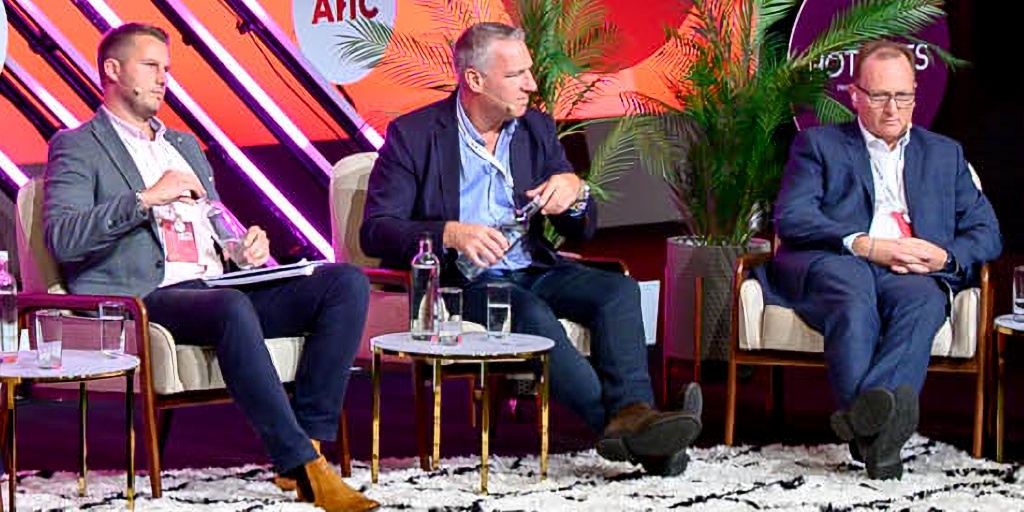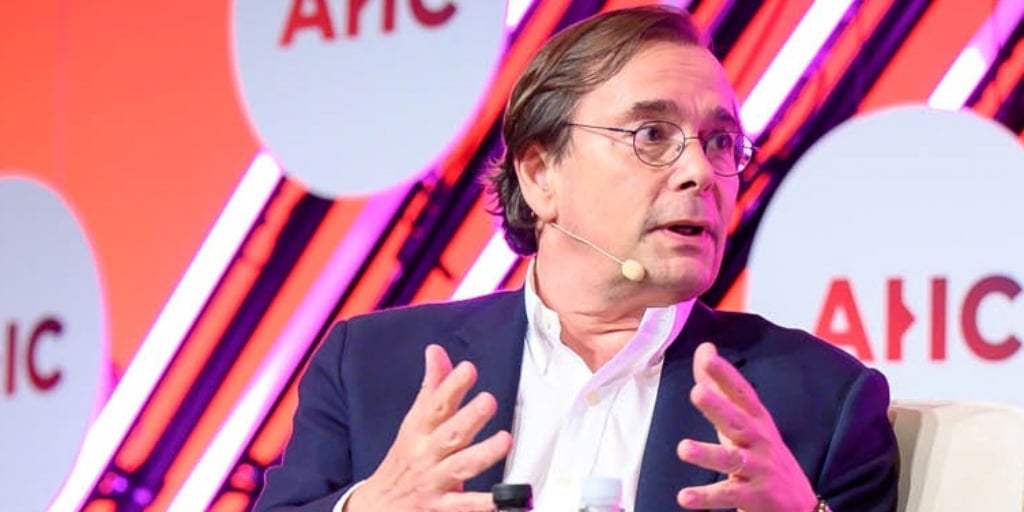Imagery courtesy of AHC. L-r: Stockton-on-Tees Borough Council’s Iain Robinson and Genr8 Developments’ Warwick Smither and Legacy Hotels & Resorts’ Andy Townsend.
Public sector cooperation on hotel projects can be fraught with difficulty, according to Andy Townsend, CEO of owner, operator and manager, Legacy Hotels & Resorts.
Speaking during a panel discussion on ‘How to fill the hotel development viability gap?’ at the AHC event in Manchester, UK this week, Townsend detailed a blame avoidance culture within some local authorities.
He said: “The biggest worry for me is when you sit in front of somebody, and they want to make the most defendable decision. At that point, we’re screwed. Because the most defendable decision isn’t always the right decision in the long term. Because they want to be able to say, if in the event this goes wrong, do I have a position I can take where I can protect my job?”
Brave decisions
However, he acknowledged: “Spending the public purse is hard, but you’ve got to make some brave decisions. A lot of the projects that are on our desk at this time have a significant funding gap. The reality is, all hotels have a fundamental problem in that they cost too much to build.”
Townsend feels there is a solution though, that emphasising focusing on cost per key, as well as the wider economic influence of the hotel, tend to get local authorities onboard with a hotel project. “When you’re putting the economic impact of it over a 25-35-year term, that makes the difference,” he underlined.
Wider understanding
The local authority representative on the panel, Iain Robinson, assistant director at Stockton-on-Tees Borough Council, recognised: “Not many local authorities are desperate to own hotels. Developers should approach projects location by location. Ultimately political organisations need to have an understanding of those wider benefits – it’s important for selling it.
“Perversely sharing advice on any upfront risk is really helpful to get the ball rolling.”
Townsend responded: “Rarely does a local authority come to us and say ‘this is what I want’. The person in the local authority that’s buying the project usually doesn’t really understand what they’re buying. There is a journey that you have to take to get to that stage.”
Related Articles
[showlayout id=510774]
Error, group does not exist! Check your syntax! (ID: 3)






